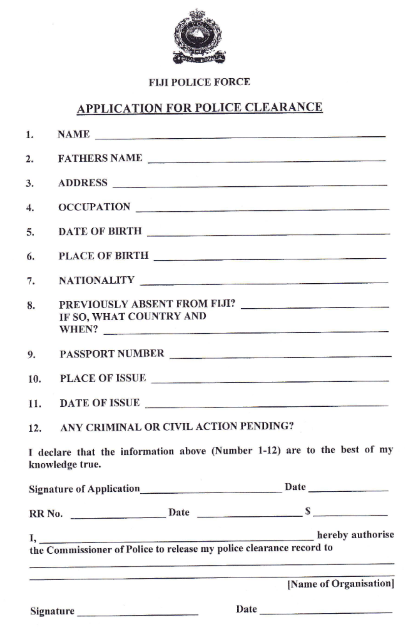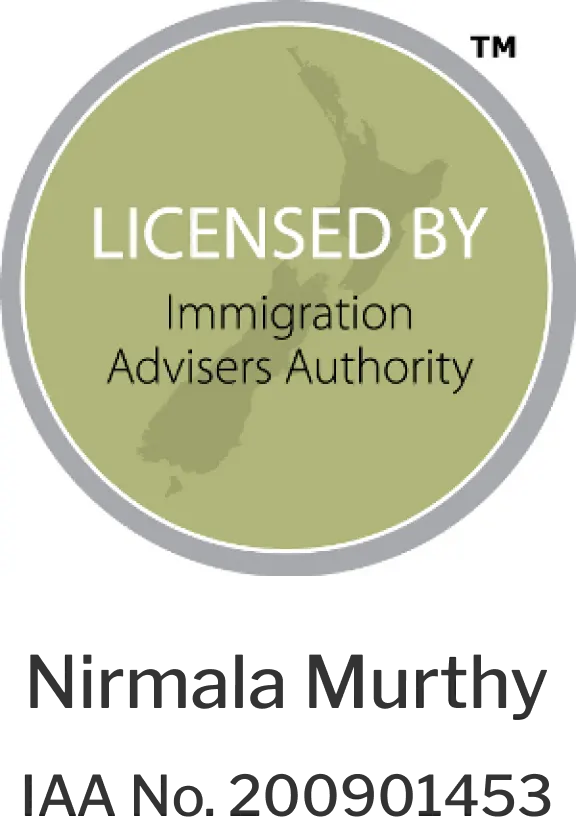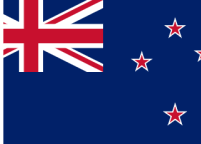Fiji Police Clearance Certificates (PCC) for New Zealand Visa
Obtaining a Police Clearance Certificate (PCC) from Fiji is essential for Fijian residents applying for a New Zealand visa. This guide outlines the process for acquiring the critical document to comply with Immigration New Zealand’s character requirements.
What to Request
- Document Required: Fiji Police Clearance Certificate
- This certificate confirms whether you have any criminal records that need to be disclosed or details any existing records.

How to Apply
- Where to Apply: Apply to the Officer in Charge, Criminal Investigations Department (CID), Police Headquarters in Suva, Fiji.
- Contact Information: Officer in Charge, CID, Police Headquarters, Suva, Fiji
What to Provide
- Required Documents
- A completed application form (INZ 1185 Fiji Police Clearance Application, available on the Immigration New Zealand website).
- A certified copy of your birth certificate.
- A photocopy of the pages in your passport that show your details.
- A set of fingerprints (For information on how to obtain fingerprints, see the INZ 1185 Fiji Police Clearance Application form).
Fees to Pay
- Fee Information: You may need to pay to obtain the Police Clearance Certificate. Contact the Police Headquarters in Suva for the most current fee information and payment methods.
Ready to Begin Your Kiwi Journey?
20+
Years of Expertise
300+
Google Reviews
Flat Fee
& Transparent Pricing
Processing Time
- Estimated Timeframe: The processing time for a Fiji Police Clearance Certificate can vary. It is advisable to apply well in advance of your visa application deadline. Contact the issuing authority to determine how long your request for a police certificate will take.
Further Information
- Certificate Validity
- The Police Clearance Certificate must be under six months old when submitting your visa application to Immigration New Zealand.
- Online Visa Applications: If you are applying for a visa online, you should upload evidence that you have applied for your police clearance certificate, such as a receipt.
Conclusion
Applying for a Police Clearance Certificate in Fiji requires careful preparation and timely submission. Ensure all the necessary documents are correctly completed and submitted to avoid delays in your New Zealand visa application.
20+
years of experience
1000+
satisfied clients
300+
google reviews
Flat Fee
assurance
Client Testimonials



FAQs
A Fiji Police Clearance Certificate is an official document issued by the Criminal Investigations Department (CID) in Fiji that summarises an individual's criminal record or confirms the absence of any criminal record. It is required for New Zealand visa applications to verify the applicant’s character.
Any Fijian citizen or resident applying for a New Zealand visa who expects to stay for 24 months or more must provide a Police Clearance Certificate as part of their application.
Fingerprints can be obtained at your local police station or through a certified fingerprinting agency. The INZ 1185 Fiji Police Clearance Application form, available on the Immigration New Zealand website, provides detailed instructions on how to obtain a set of fingerprints.
The processing time for a Police Clearance Certificate in Fiji can vary depending on the current workload of the CID. It is recommended that you apply at least a few months in advance to ensure the certificate is ready when required for your visa application.
The cost of obtaining a Police Clearance Certificate may vary, and it is essential to contact the Police Headquarters in Suva for the most up-to-date fee information. The fee may include charges for processing the application, obtaining fingerprints, and any additional services.
Currently, the application process for a Fiji Police Clearance Certificate is manual. It requires submitting the completed application form and supporting documents in person or by mail to the CID at the Police Headquarters in Suva. However, evidence of your application, such as a receipt, can be uploaded online for visa applications.
Disclaimer: The information provided is subject to change based on New Zealand government policies. For the most current information, please refer to Immigration New Zealand or contact ICL Immigration for updated guidance.




















